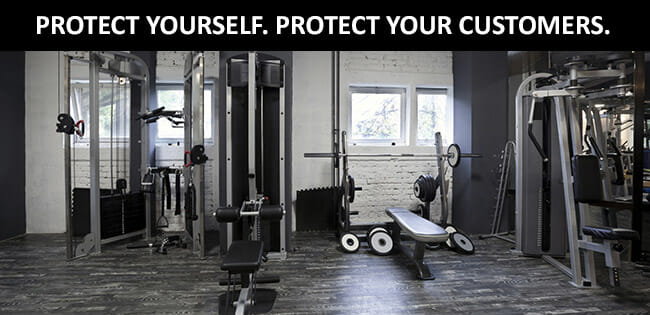
Opening a gym is a big step–and chances are, you’re incredibly excited about it. It’s a great journey that will help you advance your clients on their path to health and wellness, allow you to develop a great source of income, and even improve your health journey. As a gym owner, you will experience many opportunities along the way. Before you jump in and get started on your gym, however, you must have the right gym legal requirements in place to protect yourself and your customers.
File for an Employer Identification Number
An employer identification number will identify your gym as a business entity. With your EIN, you can file taxes and provide tax information to any employees of your gym: personal trainers that work directly for you, the people who operate your gym daycare, your receptionists and managers, and more. Your EIN also separates your gym’s tax information from your personal tax information at the end of the year, making it easy to keep up with all of that vital information. You may want to choose to set your gym up as an LLC to help protect your finances
Check Zoning Requirements
Before you dive in and, for example, open a gym in your backyard, you’ll need to make sure that the area you’re considering is appropriately zoned. Not only do you need to open your gym in an area that is zoned for businesses, but you’ll also want to make sure that you can operate a gym, specifically, in that area. You may also want to look into any regulations concerning spas if you’re considering adding a massage parlor or other services to your gym.
Register for Taxes
In addition to filing for an employer identification number, you’ll need to let the state and federal government know that you will be operating a business and file your taxes accordingly. You may want to work with an experienced accountant or attorney to make sure that you fully understand your tax responsibilities as a gym owner.
Get Your Business License
Surprise! It’s not a personal trainer’s license or degree that you’ll need to open your gym. While that type of certification and training can be incredibly helpful, especially when you’re looking for other personal trainers to take on clients with your gym, it’s not the most important license you’ll hold. Like any other business, you will need a business license to own and operate your gym. Check your local ordinances to understand the licensing requirements for your area better.
Get the Insurance You Need
As a gym, you have a high possibility of visitors, customers, and even employees getting injured on the job. While you will take every step possible to protect your clients, you may suffer serious legal repercussions if someone does face injury on your property. Make sure you have the right insurance policies to cover every aspect of your business:
Protection for the property. Property insurance can protect against fire, flood, and other natural disasters, as well as vandalism. When you choose property insurance for your gym, make sure that it’s adequate. It’s often tempting to choose a plan with low monthly premiums, especially when you’re first starting. Unfortunately, low monthly premiums can also mean high deductibles or little coverage in the event of a disaster, which can leave you struggling to rebuild.

Liability insurance. Sometimes, in spite of your best efforts, someone might suffer an injury in your gym. An error by a personal trainer–even the best-trained personal trainer–faulty equipment, or even a slip and fall can cause serious injuries, which can, in turn, leave you facing substantial financial penalties. When you carry dependable liability insurance, on the other hand, your finances and the gym’s finances are protected.
Workers’ compensation. If you have employees, they have the chance of suffering injury–especially in a gym. It’s all too easy for a personal trainer to hurt themselves dealing with a client or for a cleaner to suffer an injury working around gym equipment. Workers’ compensation insurance helps provide for the employee and his medical expenses while he’s off work due to injury–and protects the business as a result.
You may also want to carry insurance that will protect you if your gym must close for a period of time due to unforeseen circumstances, offering protection for your income; insurance against employee theft or dishonesty; coverage for equipment breakdowns; and occurrence insurance, which will protect you if your clients suffer injury at your gym, then come back to complain years later.
Create Those Waivers
To help protect your business and you, personally, your gym should have waivers designed to protect your facility and your employees against personal negligence. Your waivers should indicate that your clients accept the risk associated with using your facility and that they will not hold you liable for any injury sustained due to the regular use of that equipment or facility. While these waivers will not protect you against any liability, they can substantially reduce your liability when user error causes injury.
Get Familiar with State Gym Legal Requirements
Each state has its own set of gym legal requirements for owning and operating a gym. You may, for example, be required to own a defibrillator or have a member of staff present who knows CPR. Local zoning regulations may require a written emergency plan–in some cases, one developed by a medical professional. Take the time to familiarize yourself with local requirements in your area, then take the steps necessary to fulfill them before you open your doors. Consult an attorney to be sure you’ve covered all your bases so that you aren’t surprised on opening day!
There are many legal requirements associated with owning and operating a gym–and one of the most important is your insurance. Are you struggling to sort out what coverage you need for your gym or looking for a great insurance provider? Contact us today to learn more about how we can help.
Read More




